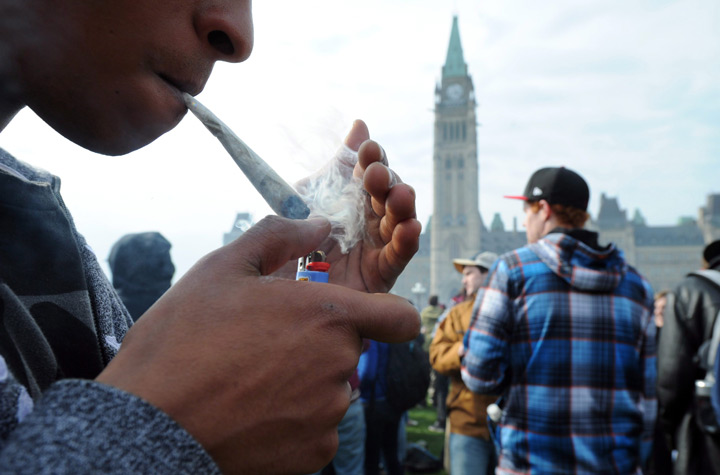The Trudeau government has plans to introduce legislation next year that will legalize marijuana across the country. But this violates three international drug control conventions, according to an international lawyer.

In an opinion piece published in the Canadian Medical Association Journal (CMAJ) on Monday, authors Steven J. Hoffman and Roojin Habibi claim that allowing possession of pot would violate three separate conventions: the Single Convention on Narcotic Drugs of 1961 as amended by the 1972 Protocol, the Convention on Psychotropic Substances of 1971 and the United Nations Convention against Illicit Traffic in Narcotic Drugs and Psychotropic Substances of 1988.
Marijuana is considered a Schedule 1 narcotic as classified by the World Health Organization (WHO). Schedule 1 narcotics are considered to pose a serious health risk to the public and are some of the most strictly regulated substances which include LSD and ecstasy.
“Canadians should care that our government follows international law because we often want other countries to follow international law,” said Hoffman, an international lawyer and professor at the University of Ottawa. “Picking and choosing which international laws to follow is hypocrisy.”
Hoffman believes there are three options the government could take to avoid contravening international conventions, but not all of them will be appealing.
One solution would be to seek an exemption to the treaties’ strict provisions. Another would be to try to amend the provisions.
There is one more solution, however. But it would likely be the most politically charged.
The conventions do allow an exception: if the treaties’ provisions come into conflict with a country’s domestic constitution, the country is allowed to follow its constitution. So if the federal government made it a constitutional right to possess and use marijuana, we’d no longer be in conflict. But it’s highly unlikely the Trudeau government would take that route, Hoffman said, particularly in light of more pressing constitutional issues.
However, several countries have done just that, including Bolivia, Nicaragua, Peru and Belize.
What needs to be done — something that has been needed for some time now — is a re-examination of the definitions of the terms in the conventions, according to Hoffman. It’s also been suggested that the WHO reclassifies marijuana as a Schedule II narcotic.
“I think there’s an opening here, in that the United Nations’ treaties are outdated … they’ve proven ineffective,” Hoffman said. “Just like domestic laws every now and then have to be updated, so too do international laws. ”
“And this is an example of an international legal regime that is from the 1960s war on drugs, that war has not worked and this government believes that war is causing harm to people in Canada.”
With the legalization of pot in Colorado, the United States has contravened the drug control conventions. However, in their case, it’s an issue of criminal laws being regulated by the state and not federally.
READ MORE: Vancouver begins enforcement for medical marijuana dispensaries
On the international stage, the legalization of marijuana is a divisive one: while western countries are leaning more to decriminalizing marijuana possession and potentially legalizing pot, there are still 32 countries that impose the death penalty for drug smuggling.
While some challenge the belief that Canada would violate the conventions, Hoffman said the wording is clear.
“The most clear one is the trafficking convention: the 1988 treaty, Article 3, subsection two, it’s very clear: states are … required to criminalize the possession, purchase and cultivation of narcotic drugs. And that includes marijuana.”
As an international lawyer, Hoffman said that while it’s a country’s right to withdraw from international laws, he doesn’t like to encourage such actions. However, in the case of Canada’s contravention of the drug control conventions, it may be in Canada’s best interest.
“It might actually be the current government’s moral duty to withdraw from them. And if it’s done in the right way, it could actually be a really great opportunity for Canada to take a leadership role on the world stage against old outdated approaches to drug control and instead promote a public-health evidence-based approach.”
Efforts to reach Global Affairs Canada were unsuccessful.



Comments